Nostalgia: “describes a sentimental longing for the past” defines the dictionary.
I’m not one to sit and say that everything was better when I was a youngster – bikes certainly weren’t; much of the equipment available was scrap and would get laughed out of court in 2013.
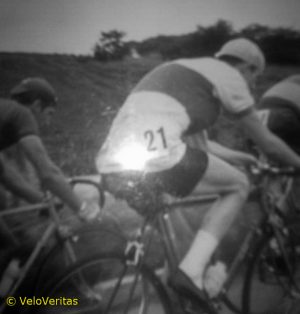
Cycling clothing was horrible and cycling shoes were positively medieval.
Albeit cars were cooler, music was better and so was the cycling scene. There were more races, more riders and it was a more soulful sport, at every level.
And despite Cav, Brad, Geraint and Chris Froome’s successes there can be little argument that the Scottish and British domestic scenes are woefully short of good races.
We recently interviewed Chris Jennings, ex of Rapha, now with VC La Pomme Marseille and winner of the 2012 Davie Bell Memorial race. He gave the main reason for his departure to France as a lack of UK racing – and to get races and maintain condition many of the UK teams now have to go to France or Belgium on a regular basis.
In England, there’s no Archer GP, Tour of the Cotswolds, GP Pernod and virtually no stage racing – any pro will tell you that it’s stage racing which builds condition and if you don’t ride them then you’re at a severe disadvantage to those who do.
In Scotland there’s no Inverness-Elgin, Glasgow-Dunoon, Tour of the Kingdom or Girvan.
It’s easy for me to say what there isn’t but race organisation is a thankless task, and perhaps it might be better if the Federations stepped in and assisted in the promotion of races – as happened in Wallonia in recent years.
Maybe my thinking is wrong, but when Dumfries bailed out on the Tour Doon Hame (and was there ever a worse name for a bike race?) Scottish Cycling should have stepped in and said; ‘let’s get this race back to Girvan where it belongs’ and asked the organisation what they needed.
But this piece isn’t about me ranting, honest. It’s about how cycling used to be in Scotland, 50 years ago.
Our pal Viktor’s training partner and a man who’s been on the Scottish race scene for a lifetime, Dave Meek contacted me recently to tell me that his boyhood friend from the Stamperland Wheelers, Jim Thomson had come across a piece of history which VeloVeritas may like to see.
The item in question is a programme for the 1962 Usher Silver Tankard road race.
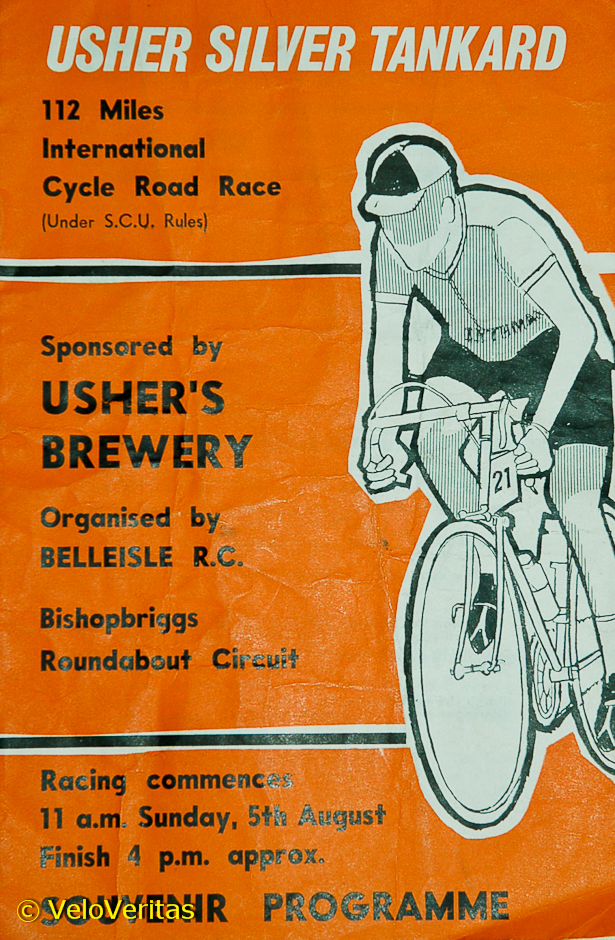
A programme in itself is actually a rare beast for a Scottish race, these days; ‘excuse me do you have a spare start sheet?’
‘No!’ is the usual riposte.
The race was 112 miles; that I’m aware of, there are no races over that distance in the UK anymore. Some would say that it’s too long – but most big continental races will be at least that distance. But before we get too misty eyed, the type of sponsorship which made the race possible is no longer permitted – as far as we’re aware, it’s now not possible to have an alcoholic drink as a race sponsor.
And the 40 man field was a relic from the days of NCU/BLRC struggles and compromises.
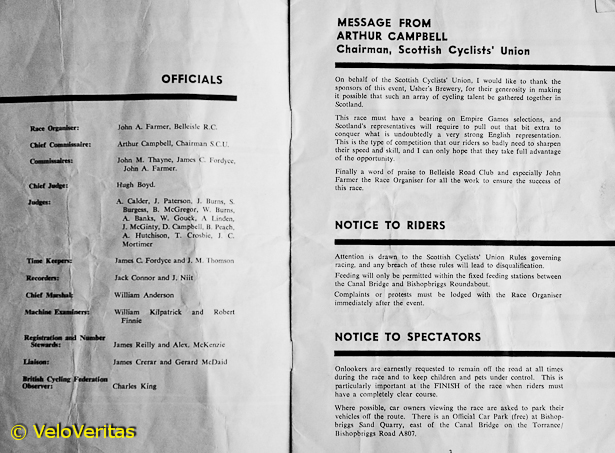
The prize list is an eye opener though; a voucher for £110 plus the Usher Silver Tankard. In 1962 my dad, as a tradesman, would have been making around £20 each week; first prize in the race is therefore the equivalent of at least a month’s wages – perhaps £2,000 in today’s terms?
Second spot nets £60, with a quid for the 15th finisher – plus there are lap primes and a points classification.
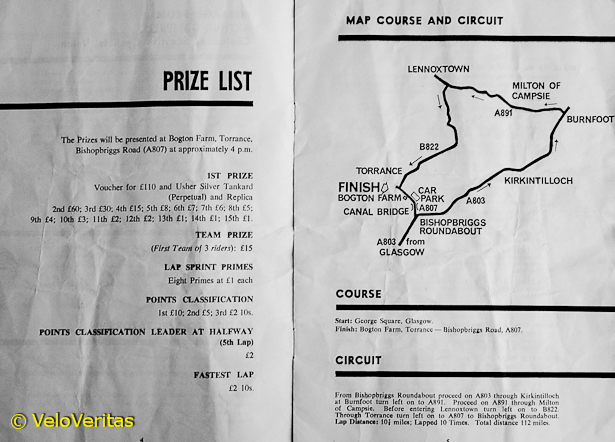
The circuit was Bishopbriggs, Kirkintilloch, Burnfoot, Lennoxtown and Torrance, ten times – readers from the West of Scotland will know better than me if that would still be a feasible proposition – or perhaps it’s too much of a boy racer track, nowadays? But it certainly took the race to where people would see it.
Good prizes, a good circuit – but what about the field?
Bear in mind that this was an international race, so as well as strong Scottish club teams like the Belleisle RC with Fraser Connell and regional Scottish teams like West Scotland with Norrie Drummond there were national teams too.
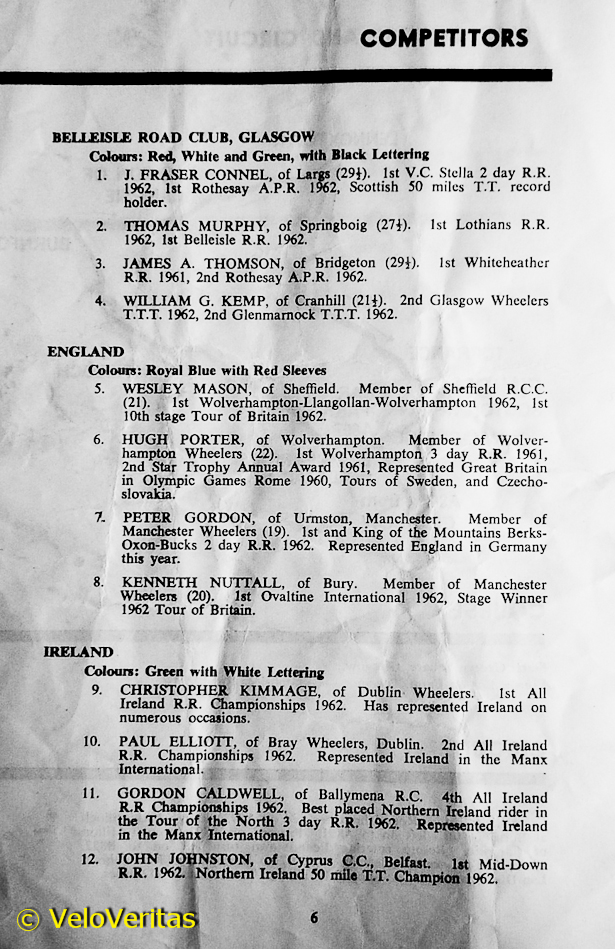
The England squad had 21 year-old Wes Mason from Sheffield; who in 1962 won the GP Essex, a Milk Race stage, the Star Trophy (what is now the Premier calendar) and the Commonwealth Games Road race. Mason turned pro and rode for Viking, Trumann’s Steel and Carlton.
Tall and gangly but grimly determined Peter Gordon (19) from Manchester who would go on the win the British Amateur Road race Championships in 1964 and ride as a pro from 1965 to 1971 for Viking, Trumanns Steel, Broadhurst Biscuits and Holdsworth.
Ken Nuttall (20) from Bury won two stages in the ’62 Milk race and was eighth on GC; he rode in France and was second in the ’65 Paris-Evreux Classic. Nuttall would take second spot at the Bogton Farm finish that day in 1962, but tragically died in 1980 at just 37 years-of-age.
The fourth member of the squad was a 22 year-old who would go on to become arguably the greatest pursuit rider the world has ever seen – Hugh Porter from Wolverhampton. As an amateur in 1966 he’d win the GP Essex, the Star Trophy and a Milk Race stage before embarking on his 12 year pro career with Mackeson and Bantel.
Ireland had double 1962 Ras stage winner and All Ireland Road race Champion, Christy Kimmage, father of Paul.
There was also Paul Elliott, brother of the legendary Shay and a winner of the Tour of Ireland in 1970 as well as twice a winner of his brother’s tough memorial race.
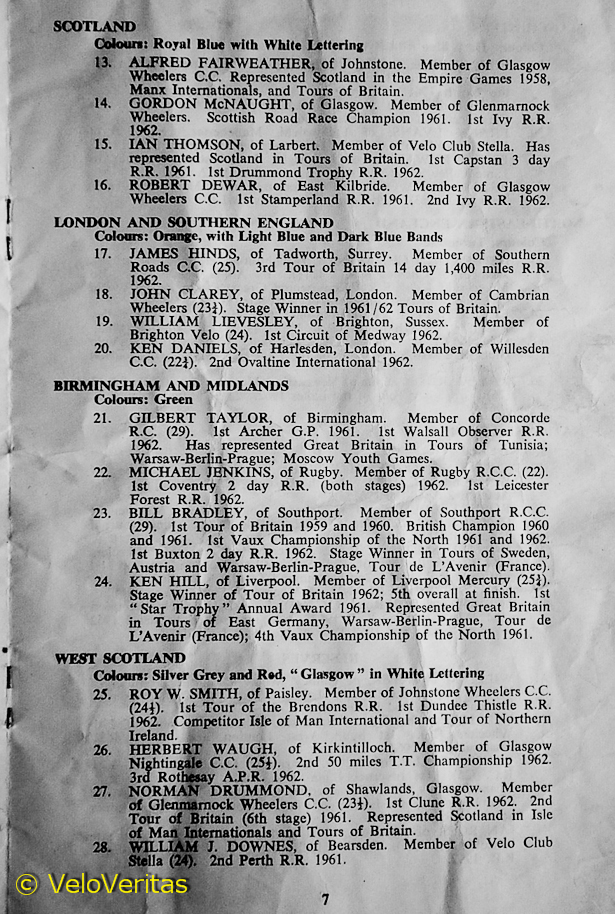
Scotland had Alfie Fairweather – who came back as a vet in 1980 and gave young men like me a fright in time trials.
Gordon McNaught, Ian Thomson and Rab Dewar completed the team – all hard, quality bike riders.
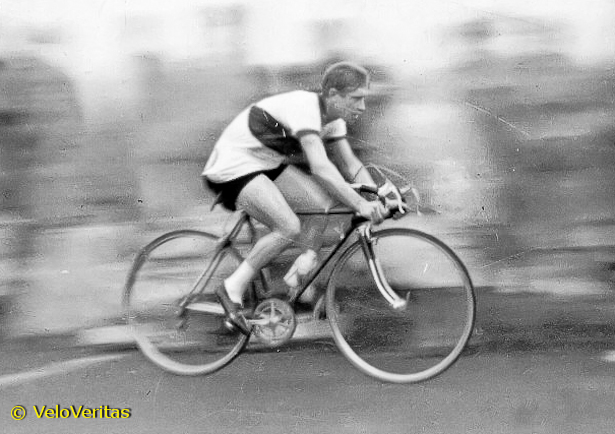
London and Southern England had Jim Hinds (25) who in 1959 won the Manx International and three Milk Race stages; and in ’62 took another Milk Race stage and was third overall.
Also in the squad was kamikaze sprinter John Clarey, (23 and ¾ says the programme) who won stages in the Milk race in ’61 and ’62 as well as a bronze medal in the ten mile at the Commonwealth Games, that year. Clarey won the Lincoln GP in ’66 and finished the Tour de France for the GB team in ’68, including a memorable fifth place on the Bordeaux stage behind Walter Godefroot and Barry Hoban. He was pro for three years with Clive Stuart and Bantel.
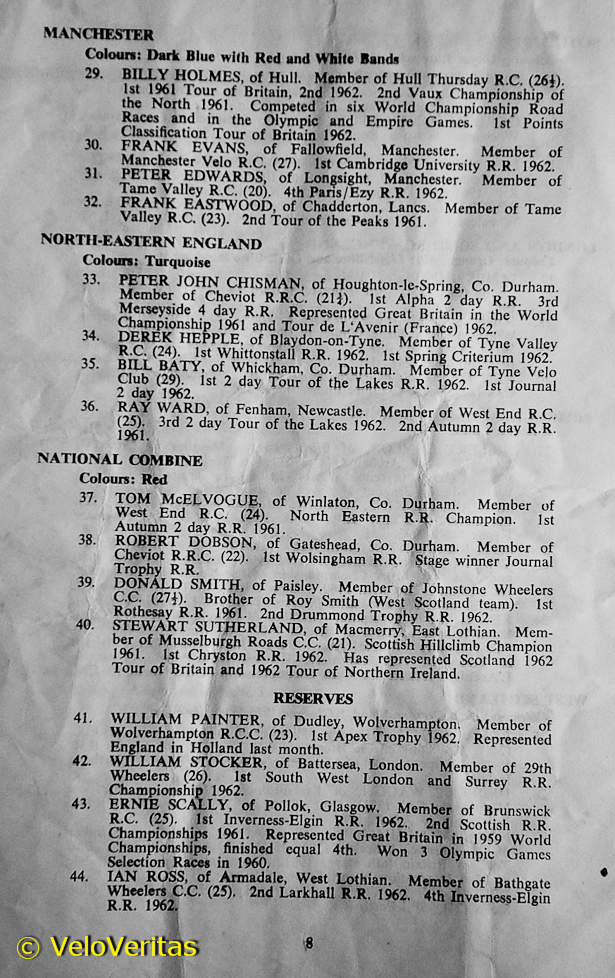
Billy Holmes for Manchester (26) was another Milk race winner in the field – he took the 1961 edition and was second in ’60 and ’62. He turned pro and rode for Falcon and Carlton between 1963 and ’68.
But the man who would run out winner was in the Birmingham and Midlands squad, Bill Bradley (29) from Southport. Bradley has rather been forgotten in the mists of time but was a quality bike rider, winning the British Amateur Road Race Championship twice and the Milk Race twice as well as stage wins in the Peace race and Tours of Austria and Sweden. He took the record for the Grossglockner climb in the Tour of Austria – still one of the toughest ascents in Europe – and won a raft of home races like the Vaux GP and Tour of the Peaks. Bradley died at the comparatively young age of 64, and there’s an annual memorial ride to commemorate the great man.
However, as the song says; ‘those days are past now and in the past they must remain.’
But next time someone tells you about how good the Scottish racing scene is, cast your mind back to 1962…
With thanks to Dave Meek and Jim Thomson.



